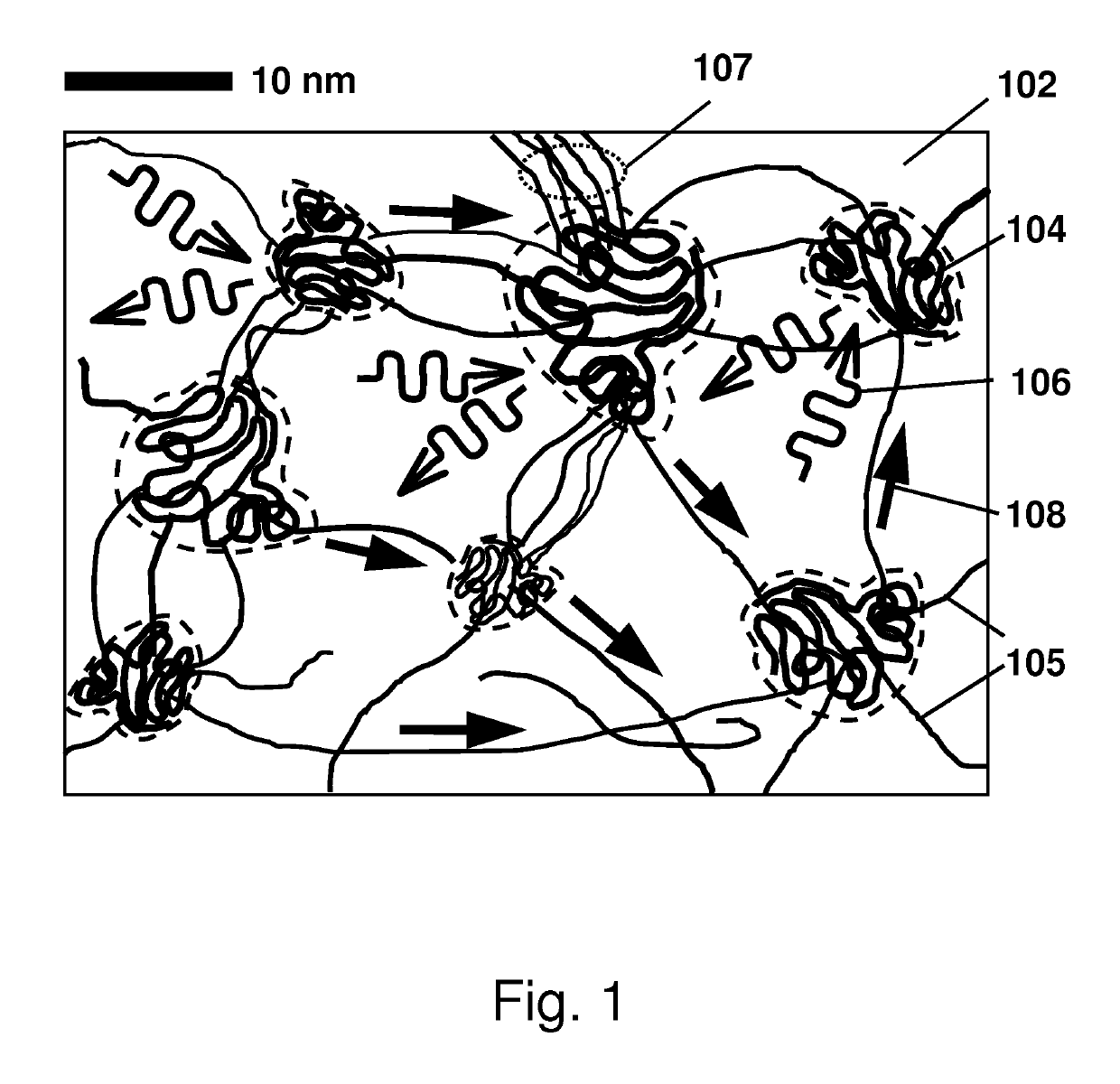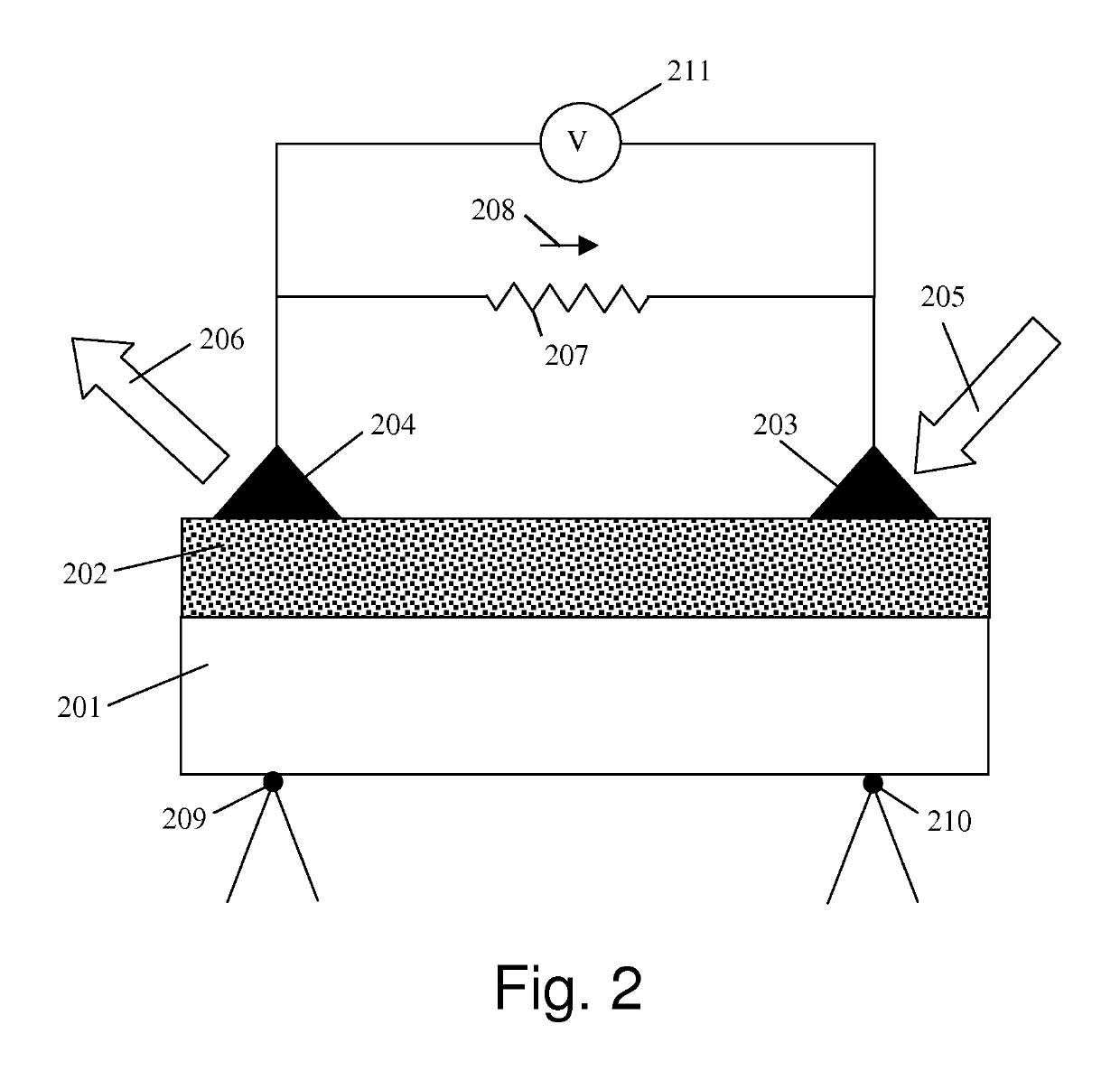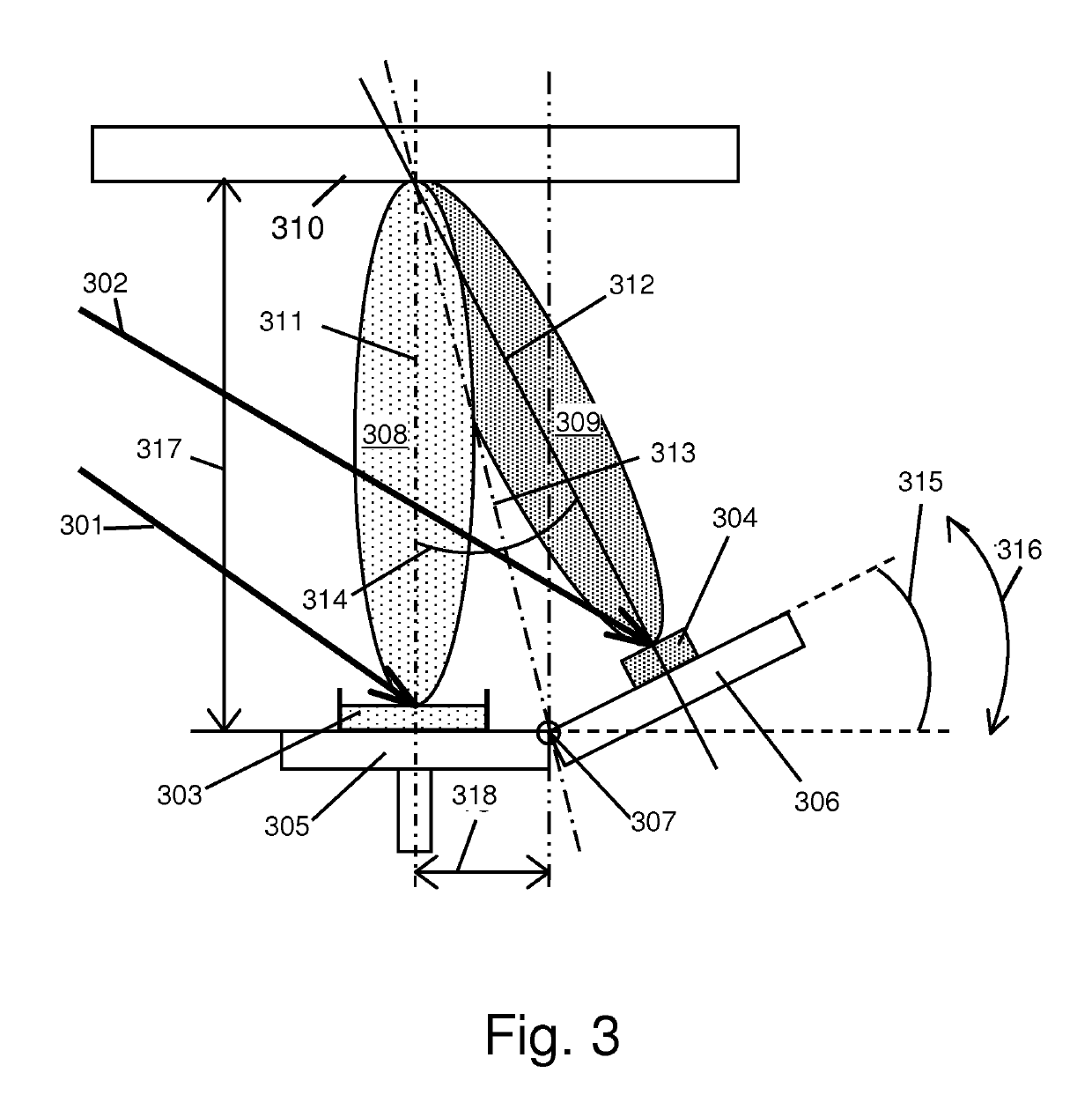Nano-composite thermo-electric energy converter and fabrication method thereof
a thermo-electric energy converter and nano-composite technology, applied in the direction of thermoelectric device details, thermoelectric device manufacturing/treatment, thermoelectric device junction materials, etc., can solve the problems of low efficiency of te devices and insufficient te properties of these devices, and achieve the effect of precise timing coordination of two beams
- Summary
- Abstract
- Description
- Claims
- Application Information
AI Technical Summary
Benefits of technology
Problems solved by technology
Method used
Image
Examples
Embodiment Construction
[0039]The thermoelectric (TE) energy converter uses a new concept of an inorganic (inorganic referring to materials lacking carbon) host (such as aluminum zinc oxide or AZO) impregnated with polymer (for example, PMMA) nano-clusters that decrease thermal conductivity and increase electro-conductivity due to carbonization. A carbonized polymer is a mixture of the polymer with decomposition products of the polymer including pure carbon in the form of highly electro-conductive graphite. A host material of a composite material is a continuous phase material in which a second phase is dispersed, for example, the continuous phase of AZO having dispersed nano-clusters. A Dual Beam Matrix Assisted Pulsed Laser Evaporation process (DB-MAPLE) may be used as part of the TE converter fabrication process. In this DB-MAPLE process, the matrix is a solvent in which a desired polymer material is dissolved and frozen in liquid nitrogen to form an organic laser evaporation target. Another laser beam ...
PUM
| Property | Measurement | Unit |
|---|---|---|
| diameter | aaaaa | aaaaa |
| thickness | aaaaa | aaaaa |
| thickness | aaaaa | aaaaa |
Abstract
Description
Claims
Application Information
 Login to view more
Login to view more - R&D Engineer
- R&D Manager
- IP Professional
- Industry Leading Data Capabilities
- Powerful AI technology
- Patent DNA Extraction
Browse by: Latest US Patents, China's latest patents, Technical Efficacy Thesaurus, Application Domain, Technology Topic.
© 2024 PatSnap. All rights reserved.Legal|Privacy policy|Modern Slavery Act Transparency Statement|Sitemap



